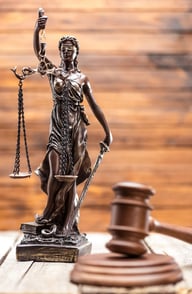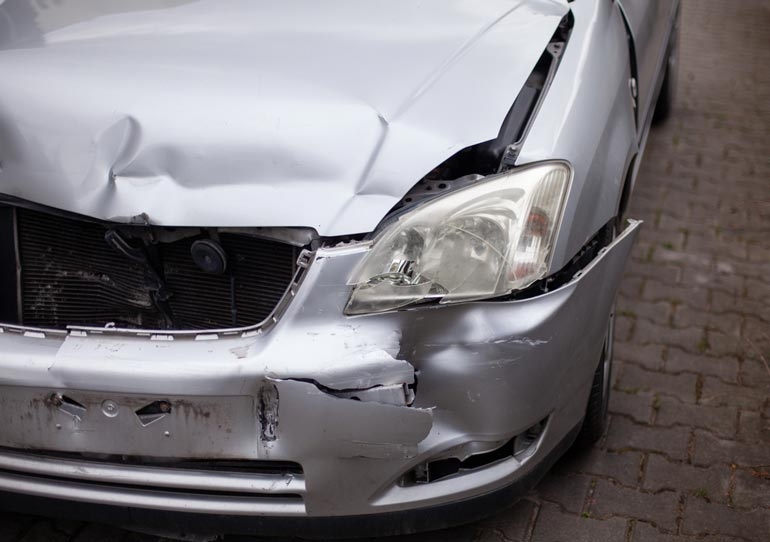Start 14-Day Trial Subscription
*No credit card required

Evidence Needed to Prove a Houston Car Accident Claim
Discover essential steps to collect evidence after a car accident in Houston, where over 175 accidents occur daily. Learn how to gather crucial information, including witness statements, photos, and medical records, to support your personal injury claim and ensure you receive the compensation you deserve.
Houston has around 175 car accidents every day, many of which are caused by negligence. These accidents often cause significant injuries, and many victims file personal injury claims to recover damages. Even in cases of extreme negligence, injured parties need powerful evidence to support their personal injury claims.
Without compelling evidence, you risk the claim being denied or the compensation reduced. Find out what evidence you should collect after a car accident and how it can support your claim for compensation.
Contact and Insurance Information
You or your attorney will file a claim to recover damages from the at-fault driver’s insurance company. First, you’ll need the driver’s personal details and insurance information.
Some drivers make the mistake of just getting a name and address, but you should collect the following:
- Name
- Address
- Phone number
- Email address
- License plate number
- Photo of driver’s license
- Name of insurance company and agent
- Policy number
- Insurance company’s phone number
Witness Statements and Contact Information
Witnesses often pull over after a car accident to offer help if needed. Many of these witnesses can provide eyewitness accounts of the accident, so ask for their contact information and short statements. After reviewing the statements, your attorney may contact the witnesses to request a formal interview.
This is necessary, even if your passengers can serve as witnesses. Third-party eyewitnesses are more credible since they don’t have a personal interest in the case.
Photographs and Videos
Reconstructing the accident is much easier when attorneys and experts have photographs and videos from the scene. Use your phone to take pictures and record videos of the vehicles involved and any damage incurred. Also, photograph your injuries at the scene, and continue taking pictures during your recovery.
In each instance, take photographs from multiple angles. This will help your attorney determine what happened and how the accident affected you.
Police Report
Call the police from the accident scene, even if you have minor injuries. Upon arriving, law enforcement officers will take statements from all involved drivers and witnesses.
Since you’ll use the police report for evidence, avoid making incriminating statements that could be perceived as admitting fault. However, do not lie in the statement. The other motorist’s insurance company will also investigate the claim; lying can harm your case.
You can request a copy of the crash report online after your accident. Then, store it in a safe place until you’re ready to file the claim.
Medical Records
The extent of your injuries directly impacts the value of your car accident claim. For example, you’re more likely to receive compensation for pain and suffering if you’re seriously injured. Additionally, serious injuries can impact your future earning capacity and medical needs, increasing the amount of money you’re eligible to recover.
Get a medical evaluation on the day of the accident and attend all subsequent appointments. Then, provide medical records as supporting evidence when requesting compensation.
You may also need medical records that pre-date the accident. For instance, assume that you suffered a back injury in an auto accident. Even though you’ve never had back problems, the insurance company says the accident exacerbated a pre-existing injury. You can provide a medical history to prove that you didn’t have any back issues before the accident.
What if you do have a pre-existing condition? A pre-existing injury complicates the case, but your medical records can help you recover some damages. Your attorney can have medical experts review and interpret your records. Often, experts discover that car accidents cause new injuries or vastly worsen pre-existing ones. In both cases, you could have a claim for damages.
Financial Documents
You have to prove financial losses to collect economic damages. First, collect all medical bills related to your accident. You can also document the mileage driven to and from medical appointments since you may be eligible for compensation for travel.
If your injuries caused you to miss work, provide pay stubs you received before and after the accident. Tax returns are also useful in painting a full picture of your finances before the accident.
What if you took paid time off while recovering so you didn’t lose any income? In this instance, you can collect compensation for the benefits you lost due to the accident. Provide documentation of all benefits you used when recovering from the crash.
Camera Footage
Few pieces of evidence are more powerful than camera footage of an accident. Houston has publicly and privately operated video cameras throughout the city, and many record at all times. That means there’s a decent chance that there’s video evidence of your accident.
Publicly owned videos consist of traffic cams and other surveillance videos operated by the Texas Department of Transportation and Houston TranStar. Houston TranStar cameras don’t record or archive videos, so you can’t obtain footage.
However, you may be able to get a copy if the accident occurred in front of a camera operated by the Texas Department of Transportation. You’ll need to make a formal request and might have to subpoena the footage. Working with a lawyer to get video footage from a government entity is helpful.
You can ask the owner for a copy of the video if the accident was recorded on a private cell phone or camera. Many people are happy to comply with the request, but some refuse to provide the video evidence. In that case, your attorney can take legal action to obtain the video.
There's one more issue to consider regarding privately owned videos. Tracking down the owner can be challenging.
For instance, you might not realize someone recorded the accident on a dashcam or cell phone. Without knowledge of the video, you can’t make a request.
Your attorney can use investigative methods to track down videos of your accident. This might include interviewing witnesses to see if they recorded the accident and scouring social media to see if anyone uploaded footage. These are just two ways attorneys can recover video evidence when building a car accident case.
Get Legal Assistance When Collecting Evidence
Strong evidence is the key to a successful car accident claim. Omitting a single piece of critical evidence can reduce the claim’s value or lead to a denial. That’s a lot of pressure for one person, but you can get help by working with a car accident attorney.
Your attorney can devote resources to tracking down and obtaining vital evidence to support your liability claim. Then, your lawyer can prepare and file your claim before negotiating with the at-fault driver’s insurance company.



